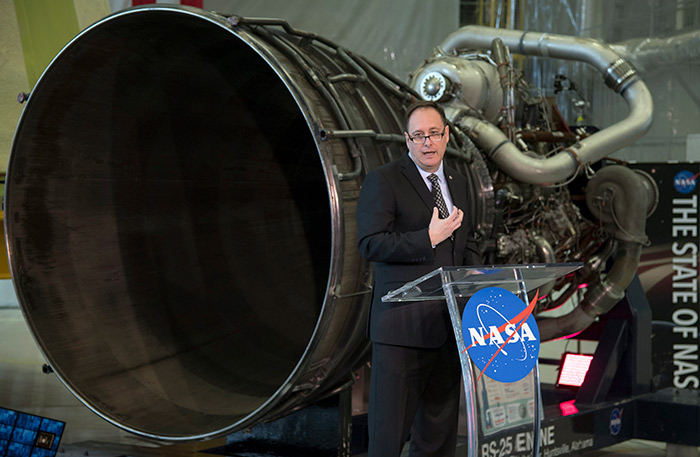By Grant Anderson
June 22, 2022
An interesting and notable bit of news hit the press in late May – a report that China is actively seeking to explore the cold, dark south polar cap of the Moon. The aim? To land a spacecraft in the shadowed lunar pole in order to investigate and probe for valued resources potentially trapped in craters. According to SpaceNews reporting, the Chinese are planning to conduct this mission within a few short years, maybe 2024 or 2025. As envisioned, this particular effort is only a couple years away, and the time between planning the operation and accomplishing the mission could be quick.

Of course, this development is only the latest in what has now been several years of Chinese technological interest and determined space program effort focused on the Moon. As the U.S. pursues a renewed effort in space – including reinvigorated human spaceflight program and utilization of resources found on the moon found in those southern craters – China has been steadily moving forward with its space program as well. And to be frank, so far, their advancements over the past several years have been impressive. Barring some major political or economic shift that stymies or significantly stalls their progress, there’s no reason to believe their plans and objectives won’t become more expansive and ambitious in years ahead.
It is for this reason and others of strategic and national security importance, that we remain steadfastly committed to the cause of increased American involvement in space. America is facing a lot of really concerning challenges at the current moment, many of which have the potential to expand – not recede – in the coming months and years. Soaring inflation and high gas prices, a stagnating economy with massive debt, and a hot war in Europe with strategic defense implications are dominating the news and concerning Americans from all walks of life.
It is in these times – especially in election years – when the nation is being hit with a tsunami of vexing and complex problems, that programs and agencies not deemed priority often get pushed down the ranking ladder of importance. In fact, America’s space program was targeted for major reductions amidst the financial crisis of 2008-2009; NASA’s budget was gutted and initiatives were put on hold or terminated as the federal government scrambled to find revenue for new initiatives chosen by the new administration. Understandably, in difficult moments, tough decisions sometimes have to be made. But now we are in a period where, despite all of the other challenges at hand, the imperative on space must be kept at the policy forefront.
On one hand, both industry and government have invested too much at this point to step back – the private sector space economy continues to move full speed ahead on research, development, testing and evaluation efforts on everything from communications, to satellites and sensors, to life support systems and spacesuits, to launch vehicles, spacecraft and energy generation.
On the other, the geostrategic concerns impacting all aspects of American strength and security require a committed concentration on commercial, civil and national security space efforts. With the rising competition in space posed by multiple nations, the criticality of space to basic everyday life on Earth, and the expanding importance of space for intelligence needs, weapons treaty verification, and environmental monitoring, America’s space programs can’t be a sacrificial offering on the budgetary chopping block. It’s that important now.
On a positive note, the Biden Administration has requested to bump up the NASA budget to nearly $26 billion for this coming Fiscal Year – an increase of 8% over what Congress appropriated for FY22. And while the increases to key human spaceflight programs such as Artemis and the Human Landing System are modest, at least they are moving ahead in the right direction. On the national security space side, the Pentagon has asked for significant increases for both the U.S. Space Force (USSF) and the Space Development Agency (SDA), almost $25 billion in total for both the USSF and SDA.
It is now up to the legislative branch to ensure that our nation’s national space interests receive the continued attention that is required. As the committee members and staff work to draft up the annual appropriations bills for FY23, a few things may be worth considering.
One – the supply chain schedule and cost problems that are affecting so much of our economy and way of life do not exclude the space industry, and if we are to maintain the right pace of space development and meet timelines, this issue shouldn’t be marginalized. Congress needs to take these topics seriously as it drafts and marks up its FY23 budget bills.
Two – keeping ahead of global competitors will require us – as a nation – to get innovative in all aspects of program execution, and this includes innovation in acquisitions and procurement. Strengthening communication, coordination, and problem solving between government and industry will only get more important in the years ahead, not less.
And finally, with a major shift in control of Congress becoming a strong possibility after the 2022 mid-term elections, these changes present an opportunity for greater bipartisan cooperation on an issue that benefits all Americans. Defense has always been an area that has seen less rancor and partisanship – and America’s future space program should be the same. At the same time, changes in Congress may allow for a policy re-emphasis on NASA programs that are truly space-focused, like increased scientific understanding of space and human spaceflight and exploration.
We live in a distracted culture driven by soundbite politics and incessant misdirection, and where an attention-deficit media constantly chases the shiniest object in view. In this environment, it is easy to get pulled off track. And while we have a serious set of major problems and threats imperiling the nation – they most certainly need to be addressed – we need to remain disciplined and keep pushing ahead in strategically vital areas like space. It is a national interest of paramount importance that demands continued policy support.
Article courtesy of RealClearScience.com
https://www.realclearscience.com/articles/2022/06/22/national_space_interests_demand_continued_policy_support_838575.html
